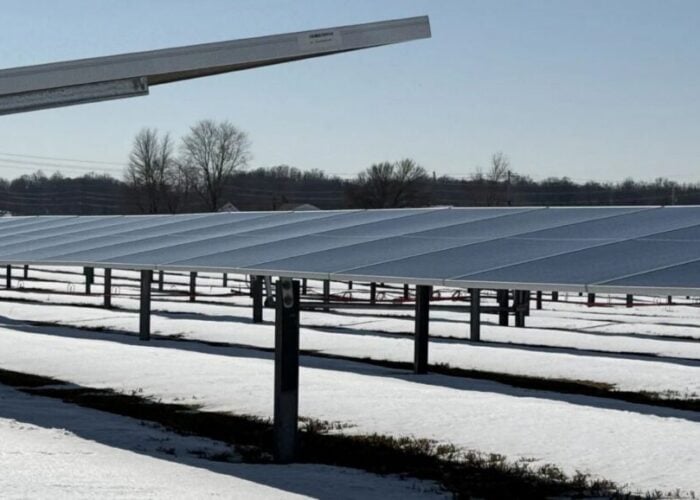UK energy and climate change secretary Amber Rudd has said the new Conservative government “does not want large-scale solar” as MPs clashed over the recent decision to bring a premature end to onshore wind subsidies.
Rudd issued a statement to the House of Commons yesterday afternoon defending the Department of Energy and Climate Change’s (DECC) move to end support for onshore wind in 2016 under the renewable obligation (RO) scheme, but was also quizzed on the department’s commitment to large-scale solar farms. Solar farms over 5MW in size are no longer eligible for the UK's renewable obligation support scheme.
Try Premium for just $1
- Full premium access for the first month at only $1
- Converts to an annual rate after 30 days unless cancelled
- Cancel anytime during the trial period
Premium Benefits
- Expert industry analysis and interviews
- Digital access to PV Tech Power journal
- Exclusive event discounts
Or get the full Premium subscription right away
Or continue reading this article for free
Dr Sarah Wolleston, MP for Totnes in Devon, asked whether or not the onshore wind decision would result in a “further expansion in very large-scale field solar” across her constituency and called upon the department to instead support community energy schemes.
“We support the desire to make sure that we address the issue of climate change: the problem is that we do not want large-scale solar,” Rudd said, reaffirming that large-scale solar (>5MW) had already been taken out of the RO following the 1.4ROC deadline on March 31.
“But we are trying to support solar so that we have as much as possible through community energy, on people’s houses and on other buildings. There is a great opportunity there,” Rudd added.
Rudd has been a proponent of rooftop solar since her appointment, pledging to “unleash a new solar revolution” with a particular emphasis on rooftops with DECC believing the public perception of large-scale solar to have faltered in recent years.
The decision to cut onshore wind subsidies has proven to be hugely contentious and Rudd was forced to contend with staunch criticism throughout her appearance, particularly from Scottish National Party MPs who claimed the decision would result in thousands of job losses in Scotland and would damage investor confidence in the entire renewables sector.
Labour MP Caroline Flint said the decision had caused “confusion and concern” within the renewables industry, while the Green Party MP Caroline Lucas asked why Rudd was not tackling fossil fuels subsidies instead of “one of the most popular and affordable” energy sources in wind, citing an IMF report which stated the cost of onshore wind subsidy to be £10 (US$15.8) per household per year compared to the fossil fuel industry’s £1,000 (US$1580) per household.
The session also once again raised doubts over the fate of onshore wind within the next contracts for difference (CfD) round, due in October, and what that might mean for prospective large-scale solar farms. The CfD mechanism is a competitive bidding process that has being brought in to replace the RO for larger renewables projects.
Labour MP David Hanson questioned Rudd over whether onshore wind would feature in the next CfD round to which Rudd reiterated that the Conservative Party would be “implementing the terms of [its] manifesto” with respects to CfDs.
Rudd has previously said the department would announce its plans for further CfD allocations in due course, however her comments could be interpreted to mean that onshore wind would be excluded from future CfD rounds, seemingly leaving the door open for solar to achieve a far bigger percentage of the pot than it did in the first round despite Rudd’s assertions that her party does not want any more large-scale solar developments.
Meanwhile, the Scottish government has launched a consultation which proposes to remove planning permission requirements for all commercial solar installs. The move echoes a similar one taken by England and Wales which raised the so-called ‘permitted development’ threshold for commercial solar installs from 50kWp to 1MW in March this year. The Scottish proposal would remove that limit altogether.
Additional reporting by Peter Bennett






